Aijun Yang
Enhancing the Outcome Reward-based RL Training of MLLMs with Self-Consistency Sampling
Nov 13, 2025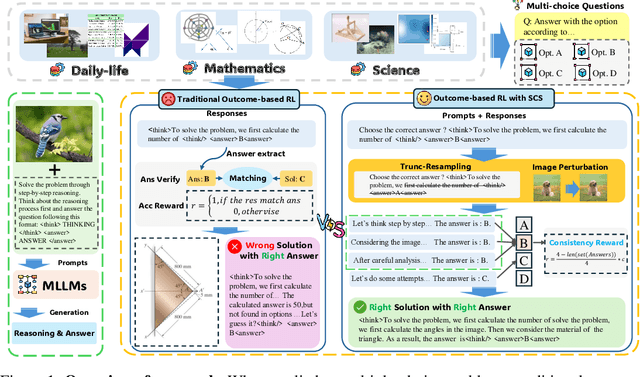
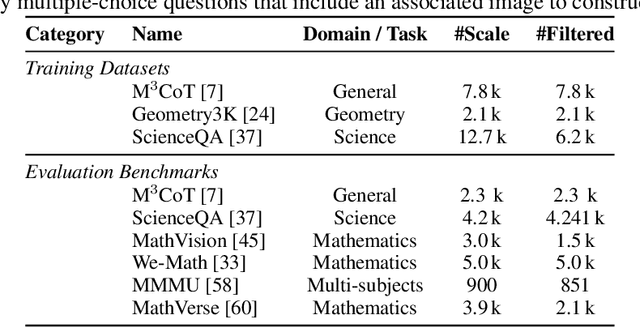
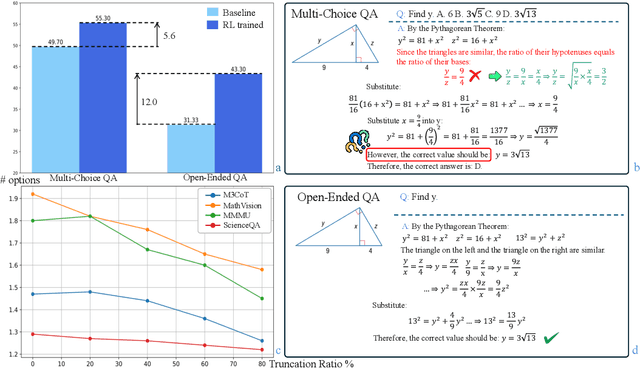
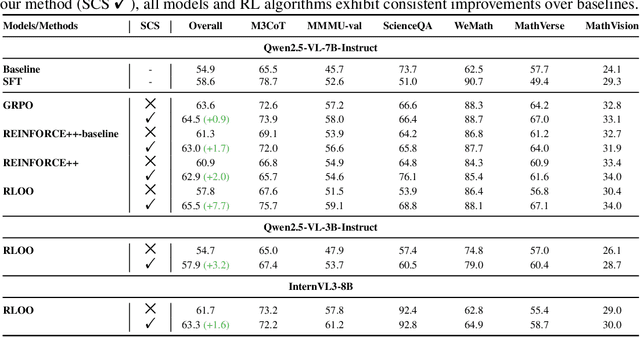
Abstract:Outcome-reward reinforcement learning (RL) is a common and increasingly significant way to refine the step-by-step reasoning of multimodal large language models (MLLMs). In the multiple-choice setting - a dominant format for multimodal reasoning benchmarks - the paradigm faces a significant yet often overlooked obstacle: unfaithful trajectories that guess the correct option after a faulty chain of thought receive the same reward as genuine reasoning, which is a flaw that cannot be ignored. We propose Self-Consistency Sampling (SCS) to correct this issue. For each question, SCS (i) introduces small visual perturbations and (ii) performs repeated truncation and resampling of an initial trajectory; agreement among the resulting trajectories yields a differentiable consistency score that down-weights unreliable traces during policy updates. Based on Qwen2.5-VL-7B-Instruct, plugging SCS into RLOO, GRPO, and REINFORCE++ series improves accuracy by up to 7.7 percentage points on six multimodal benchmarks with negligible extra computation. SCS also yields notable gains on both Qwen2.5-VL-3B-Instruct and InternVL3-8B, offering a simple, general remedy for outcome-reward RL in MLLMs.
VisuLogic: A Benchmark for Evaluating Visual Reasoning in Multi-modal Large Language Models
Apr 21, 2025



Abstract:Visual reasoning is a core component of human intelligence and a critical capability for advanced multimodal models. Yet current reasoning evaluations of multimodal large language models (MLLMs) often rely on text descriptions and allow language-based reasoning shortcuts, failing to measure genuine vision-centric reasoning. To address this, we introduce VisuLogic: a benchmark of 1,000 human-verified problems across six categories (e.g., quantitative shifts, spatial relations, attribute comparisons). These various types of questions can be evaluated to assess the visual reasoning capabilities of MLLMs from multiple perspectives. We evaluate leading MLLMs on this benchmark and analyze their results to identify common failure modes. Most models score below 30% accuracy-only slightly above the 25% random baseline and far below the 51.4% achieved by humans-revealing significant gaps in visual reasoning. Furthermore, we provide a supplementary training dataset and a reinforcement-learning baseline to support further progress.
Power-LLaVA: Large Language and Vision Assistant for Power Transmission Line Inspection
Jul 27, 2024Abstract:The inspection of power transmission line has achieved notable achievements in the past few years, primarily due to the integration of deep learning technology. However, current inspection approaches continue to encounter difficulties in generalization and intelligence, which restricts their further applicability. In this paper, we introduce Power-LLaVA, the first large language and vision assistant designed to offer professional and reliable inspection services for power transmission line by engaging in dialogues with humans. Moreover, we also construct a large-scale and high-quality dataset specialized for the inspection task. By employing a two-stage training strategy on the constructed dataset, Power-LLaVA demonstrates exceptional performance at a comparatively low training cost. Extensive experiments further prove the great capabilities of Power-LLaVA within the realm of power transmission line inspection. Code shall be released.
Complementary Relation Contrastive Distillation
Mar 29, 2021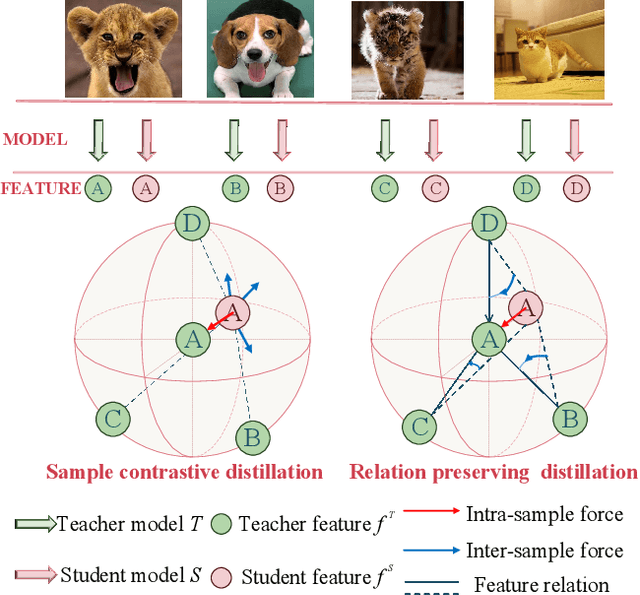
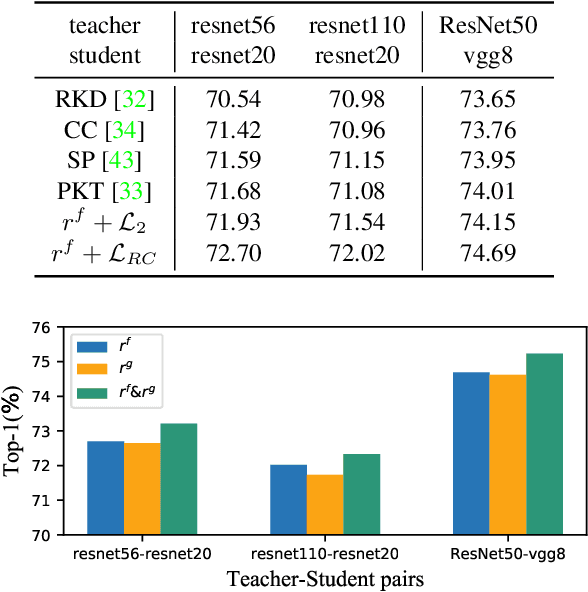
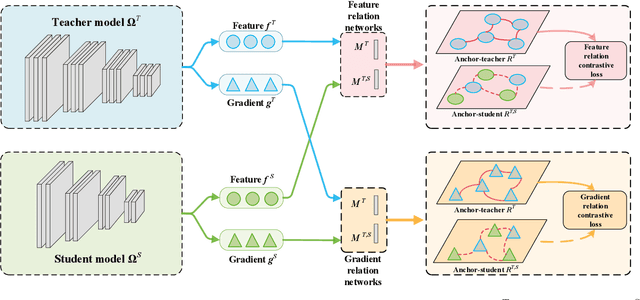

Abstract:Knowledge distillation aims to transfer representation ability from a teacher model to a student model. Previous approaches focus on either individual representation distillation or inter-sample similarity preservation. While we argue that the inter-sample relation conveys abundant information and needs to be distilled in a more effective way. In this paper, we propose a novel knowledge distillation method, namely Complementary Relation Contrastive Distillation (CRCD), to transfer the structural knowledge from the teacher to the student. Specifically, we estimate the mutual relation in an anchor-based way and distill the anchor-student relation under the supervision of its corresponding anchor-teacher relation. To make it more robust, mutual relations are modeled by two complementary elements: the feature and its gradient. Furthermore, the low bound of mutual information between the anchor-teacher relation distribution and the anchor-student relation distribution is maximized via relation contrastive loss, which can distill both the sample representation and the inter-sample relations. Experiments on different benchmarks demonstrate the effectiveness of our proposed CRCD.
 Add to Chrome
Add to Chrome Add to Firefox
Add to Firefox Add to Edge
Add to Edge